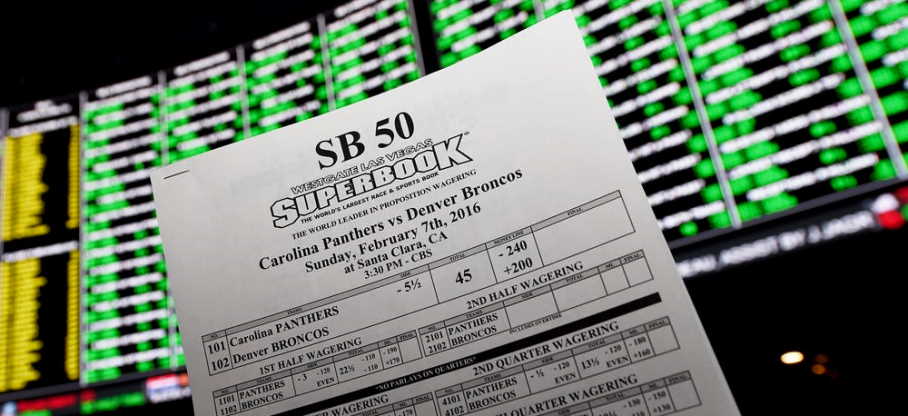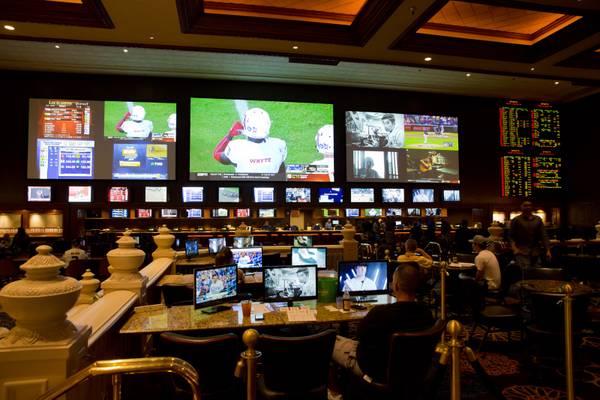Plus And Minus In Betting
“Wait, why does this NFL team have a -235 next to its name? What’s with New England Patriots (-15) vs. Miami Dolphins (+15)? Help! HEEEELPPPP!”
- What Is The Plus And Minus In Betting
- Spread Betting Explained
- Explain Plus And Minus In Sports Betting
Point spreads serve as the basis of betting. This includes a representation of the favorite sports through a minus sign. Underdog points is, on the other hand, represented through plus sign. Here is the simplest way to read the betting odds from this example, which also covers the American odds in general: If there is a minus sign in front of the number, the number indicates how much you have to wager to win $100, while if there is a plus in front of the number, the number itself indicates how much you will win if you bet $100. The magic number in sports betting is -110 because it defines the amount required by a sportsbook to earn $100 on either side of most wagers. A bettor must lay $110 to win $100 when wagering on point spreads, which are set by oddsmakers with hopes of getting equal action on both sides.
If that sounds like you, we’re here to assist you. If you’ve stared at a board at a sportsbook or just seen spreads and moneylines on the Internet and been utterly confused, don’t worry. It’s not just you. Those numbers can be confounding.
But hopefully, once you’re done reading this, you’ll completely understand how they work. As you prepare to dive into the world of sports betting, here’s a breakdown of how the lines work, starting with …
Spreads
It would be really easy to bet on a game if you could put money on a heavy favorite to win.

That’s where point spreads come in. Let’s look at an example:
Philadelphia Eagles (-4.5)
New York Giants (+4.5)

In this case, you can bet on either two outcomes: you can put money on the Eagles to win the game by 4.5 points OR MORE, which makes them the favorites. Or you can bet that the Giants will either win or lose by LESS THAN 4.5 points. They’re the underdogs.
Now, sometimes the spread “moves” during the days leading up to the game. Perhaps the Eagles’ spread ends up being -3.5 (in which they must win by 3.5 points or more to give you a victory in your bet). Your bet all depends on whichever spread you bet on, whether it was when the Eagles were favored by 4.5 or 3.5 points.
If you ever see “PK” or “pick” next to a team, it means there’s no spread and you can bet on who will win, no matter what the score is.
Moneylines
Let’s take that same example above but use moneylines:
Philadelphia Eagles (-200)
New York Giants (+150)
The team with a minus symbol is the favorite, and the number is how much money you would need to bet to win $100. In this case, you would have to bet $200 on the Eagles in order to win an additional $100.
The Giants are the underdogs. If they’re +150, that means you could bet $100 to win $150.
Note that you can bet any amount you want, but those numbers are always calculated and posted the same way, either in how much money you would need to wager to win $100 or how much money you could win by wagering $100.
Odds
If you’re betting on something like the team who will win the Super Bowl in the future, you might see it look like this:
New England Patriots — 3/1

Baltimore Ravens — 5/1
Kansas City Chiefs — 8/1
If you were betting on the Patriots and their 3/1 odds, you would win $3 for every $1 you spend. So if you bet $50 on the Pats and they ended up winning the Super Bowl, you’d win $150 (plus your original wager) back.
Good luck!
Everyone makes moneyline bets without even knowing it. Even non-gamblers make moneyline bets. Betting the moneyline for a game is possibly the most simple way to wager on sports. Bettors just choose a player or team to win. If the bettor chooses the winning side, the sportsbook will pay the amount due. It’s really that simple.
There’s no point spread with a moneyline bet. Bettors are just picking the winning side. While placing a wager is simple, trying to understand how the moneyline pays might be a bit complicated. Both sides of each moneyline wager are paid on a different schedule and that could make this kind of bet confusing.
The favorite team or player on the moneyline is the team that’s expected to win. This side of the bet usually listed with a minus (-) sign. The underdog team or player on the moneyline is the team that’s expected to lose. This side of the moneyline is usually listed with a plus (+) sign. These signs signify how either side of the wager will pay. The minus side will pay less than original wager while the plus side will pay more than the original wager.
What Is The Plus And Minus In Betting
Example of a moneyline wager
Low scoring sports like baseball, soccer, and hockey are usually bet on using a moneyline. But they are also popular in football. The best way to explain how moneyline bets are paid is with an actual example. Let’s use this past Super Bowl between the Tampa Bay Buccaneers and Kansas City Chiefs as an example.
The easiest way to understand moneyline wagers is by using a $100 bet. Using the above example, the moneyline on the underdog Buccaneers was +136. At +136 odds, a $100 wager would pay $136 in profit if the Buccaneers won the game (for a total payout of $236). Bettors often like picking underdogs because they are usually “plus” money. This side of the moneyline bet pays out more money per unit than a wager on the favorite.
In this example, the moneyline on the favorite Chiefs was -156. At -156 odds, a bettor would need to wager $156 to win $100. Since the favorite is considered the team with the better chance to win, a winning wager will usually pay out less than the original amount wagered.
Looking deeper into moneyline wagers
The two sides of each moneyline wager are essentially the opposite of each other. When wagering on the favorite it’s easiest to work from the dollar amount that will return a win of $100. When wagering on an underdog it’s easiest to understand how the moneyline pays based on how much a $100 wager will pay.
Understanding how a moneyline wager pays isn’t simple but it’s not very complicated. That said, it might take running through a few examples before fully grasping the payouts. Moneylines for football and basketball games are often tied to the point spread. When a game has a large point spread it usually has a large moneyline. Both are separate bets but are shown together in a sports wagering app screen and in a brick and mortar sportsbook.
As seen above, lines and odds may be different at various sportsbooks so consider this just an example of point spread line and a moneyline.
Spread Betting Explained
Moneyline parlays
Explain Plus And Minus In Sports Betting
Moneyline parlays are growing in popularity. A parlay is a single wager that is comprised of multiple results. The payout for a parlay is greater than an individual wager on each player or game. Underdog moneyline parlays are becoming popular because the payouts can be very large. Moneyline parlays are becoming popular because of the perceived ease of choosing multiple favorites to win. Choosing one winner is difficult and multiple winners at the same time is even more difficult.